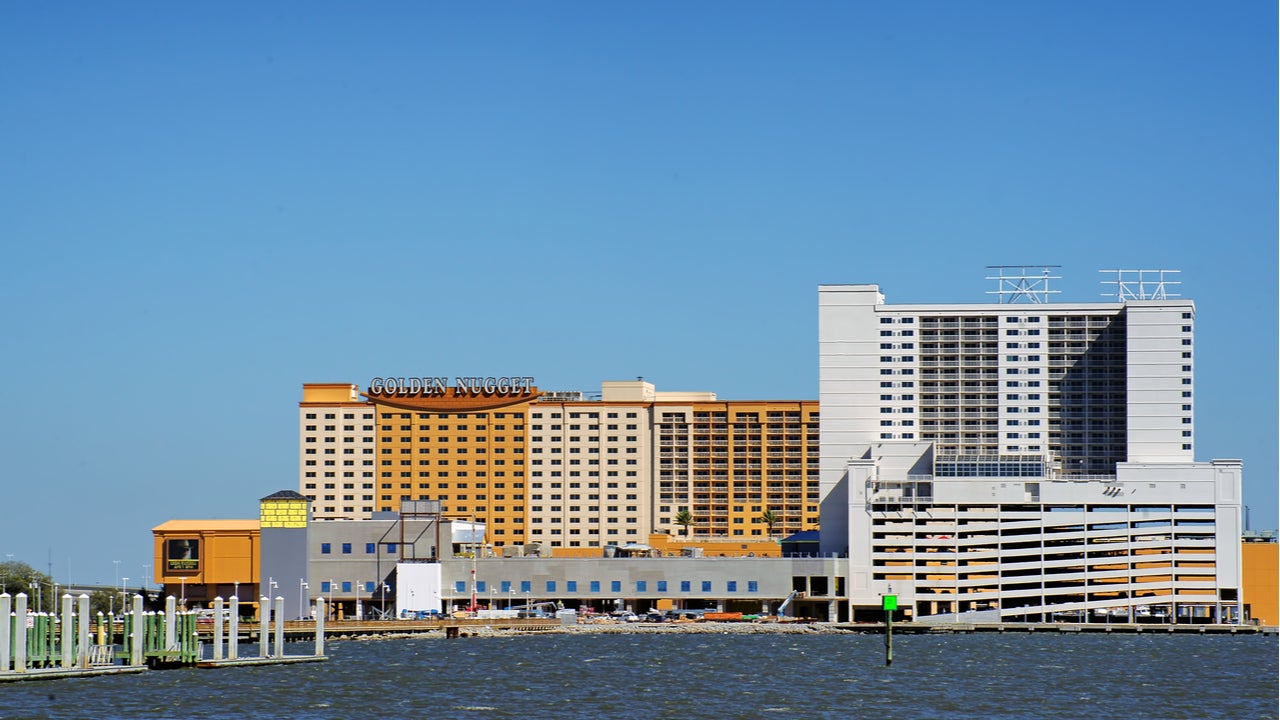Buying a house in New Jersey: A how-to

New Jersey offers big-city action, beach waves and everything in-between, whether you want to live across the Hudson from the Manhattan skyline or in the serenity of a quaint coastal town like Cape May. As you dream about planting your own garden in the Garden State, use this as your guide to figure out where to look, how much to budget and what to expect when buying a home in New Jersey.
How to buy a house in New Jersey
Decide where to live in New Jersey
It’s the most important of all the steps to buying a home: figuring out where, exactly, the house should be located. If you aren’t tied to a particular area for your job or other reasons, you can consider the pros and cons of different parts of the state: close to the hustle and bustle of New York City to the north or Philadelphia to the south; in the middle of the state in the capital city of Trenton; or a verse from a Springsteen song in legendary Asbury Park.
Median home prices can vary wildly across this popular state. For example, according to Redfin data, the median price in Princeton — home to the famous Ivy League university — is a high $925,000. But in Hackensack, only about 50 miles away, the median is just $395,000.
As you compare different cities and towns, don’t think only about your homebuying budget. It’s equally important to factor in the total cost of living to get a sense of how far your dollars will go for transportation, food, utilities and other day-to-day expenses.
Tips for buying a house in New Jersey
As you start comparing mortgage rates in New Jersey, think about how much you plan to borrow to purchase a home. Is it going to be a forever home with a luxury price tag? If so, the money you need to borrow might be require looking at jumbo loans, which are loans that exceed limits put in place by the Federal Housing Finance Agency. That dollar amount depends on the county in which you’re buying. In more expensive areas of New Jersey, like Ocean, Monmouth and Sussex counties, the 2022 conforming loan limit is $970,800. In more affordable counties like Atlantic, Cumberland and Salem, it’s much lower — $647,200.
Things to know about buying a house in New Jersey
- Property taxes: Becoming a New Jersey homeowner comes at a high tax cost. The state’s property tax rates are 2.21 percent of a home’s value: the highest rate in the country, according to the Tax Foundation.
- Dual agency: New Jersey law permits real estate professionals and their brokerage firms to represent both the buyer and the seller in the same transaction, a practice commonly known as dual agency. You will know upfront, though: Your agent must inform you, and you must provide written consent that you are OK with it.
- Seller’s disclosure: State law also requires that all sellers complete a disclosure form that outlines any defects that might impact the property and knowledge about its general condition. Read this document carefully to consider whether any past problems might create trouble for you in the future.
- Closing costs: In 2021, closing costs in New Jersey averaged $7,915 — around 1.7 percent of the purchase price of the home. There is good news for you as a buyer, though: The seller pays for the real estate transfer taxes here. However, if the home is over $1 million, you may need to pay an additional 1 percent fee.
- Real estate attorneys: The state of New Jersey does not require buyers or sellers to hire a real estate attorney. However, it’s always worth considering legal expertise to sort through the nuances of a complex real estate contract.
- Climate and weather considerations: New Jersey enjoys a moderate Mid-Atlantic climate. However, you should consider the long-term impacts of climate change and severe weather patterns when thinking about buying a home here, especially if you’re looking at properties on the popular Jersey shore. Climate scientists predict the sea level along the state’s coastline will increase by 10 to 12 inches by 2050. Since flood insurance isn’t part of standard homeowners insurance policies, look into how much additional protection will cost you each year.
- Homes near New York City: Much of northern New Jersey is considered part of the greater New York City metro area. If you’re looking at buying a home near NYC, be aware that these high-priced properties do come with some risks. A recent report from ATTOM Data Solutions identified areas of the U.S. that are most vulnerable to potential valuation declines, and several NYC-adjacent counties in New Jersey, including Bergen and Essex, made the list. So, while you may want to “start spreading the news that you’re leaving today,” keep in mind that home values there could decline tomorrow.
How much house can I afford in New Jersey?
Before you start running the numbers for your budget, it’s important to answer a few questions to figure out if you’re financially ready to buy a house.
- Is your credit in good shape? With conventional loans, you’ll need a minimum score of 620. However, a credit score above 740 will put you in position for the lowest mortgage rates.
- Do you plan to stay in New Jersey for a long time? Buying a house comes with thousands of dollars of closing costs, so you want to be confident that you will be in the home long enough to justify those high one-time expenses.
- Do you have enough money for a down payment? The more money you are able to put toward the down payment, the less you’ll owe on your mortgage.
Saving for a down payment in New Jersey
The down payment question can be the toughest to answer. In fact, Bankrate survey data shows that 36 percent of non-homeowners cite affording a down payment as a major hurdle standing in the way of buying. But don’t be discouraged. Here’s a look at some of the down payment assistance options available in New Jersey:
First-time homebuyers: New Jersey defines first-time homebuyers as anyone who has not owned a home in the past three years. The state has some attractive options to help those who qualify, including a five-year forgivable second mortgage up to $10,000 to go toward down payment and closing costs. You’ll need to meet certain income and purchase price limits, but the forgivable piece is key here: As long as you live there for five years and stay current on your payments, that $10,000 is free money.
Low-income borrowers: If you aren’t earning a sizable chunk of income, that can actually be a good thing when it comes to getting help buying a home. From HUD’s Good Neighbor Next Door program to Fannie Mae’s HomeReady program, there are quite a few options to consider if your annual earnings are low. You’ll still need a good credit score, though, and you may need to complete some homebuyer education counseling.
Get preapproved for a mortgage
Now, it’s time to take one of the most critical steps in buying a home: Get pre-approved for a mortgage. You’ll need to hand over a range of information to a lender, including past tax returns, pay stubs, bank account statements and more. The lender will review all those details, and if everything looks up to their standards, it will send you a preapproval letter. This doesn’t mean you’re officially approved, but it will show sellers that you are a qualified buyer who is likely to secure whatever financing is required.
Find the right lender
You’re not obligated to get your loan from the same company that issues your preapproval. Compare a few other lenders to see who can offer you a combination of the lowest rates and the lowest fees. Additionally, depending on how quickly you want to buy your home in New Jersey, you should ask each one about its timeline for closing.
In addition to exploring traditional lenders, like mortgage companies, banks and credit unions, companies like Ribbon and Knock can give buyers a competitive edge by financing what look like all-cash offers. If you find yourself in a bidding war, these cash-backed offers can stand out to sellers versus offers from buyers who still need to secure financing.
Find the best local real estate agent in New Jersey
Before you find the right house, you’ll want to find the right real estate agent. Agents are professional experts who know their market well, and they have the knowledge to help comb through paperwork, alert you to red flags and spot hidden gems that you might not find otherwise. All real estate agents aren’t created equal, though. They each have different levels of experience and different approaches to navigate the New Jersey housing market. So, you should interview a few candidates and ask these questions to get a sense of their style.
The right real estate agent can be particularly important when you’re buying a home from out of state. So, if you’re moving to New Jersey from somewhere else, look for a Realtor with CRP — Certified Relocation Professional — next to their name. It’s an indication that he or she is experienced in assisting clients who are dealing with the extra stresses and hassles of trying to find a home without the ease of being able to go check out a new listing at a moment’s notice.
Start house hunting and make an offer
You’re finally ready to start looking at places to live in New Jersey. Go into this phase with an open mind about what kind of place will work for your needs. Could a condo or townhouse fit your lifestyle for the foreseeable future? In Burlington County, for example, condos and townhomes have recently been selling for $257,750, according to New Jersey Realtors — a much more affordable price point than single-family homes, which run $340,000. It’s not just the type of property, either. Think about what you absolutely need, like a home office if you work remotely, for example, versus what you can sacrifice, such as an updated kitchen or a two-car garage.
When you find a house you love, your agent will be able to help you craft a compelling offer. He or she will have a sense of how quickly you need to act, along with an idea of whether you can offer less than listing price as a starting point for negotiations. And since the majority of recent New Jersey homes have sold for more than their listing price, your agent may also recommend ways to help your offer stand out from the rest.
Get a home inspection and appraisal
If the seller accepts your offer, you’ll make an earnest money deposit to show that you’re committed to making the deal happen. Then, it’s time to take a much closer look at the property to make sure it’s a wise investment. Well, you won’t take the look yourself; that duty falls to a professional home inspector, who knows how to spot hidden issues like plumbing problems or a need for roof repairs. The inspection will cost you a few hundred bucks, but it’s money well spent.
If you’re getting a mortgage for your new New Jersey pad, your lender will require that you pay for an appraisal, too. It helps the lender verify that the home is worth the price you have agreed to pay. If the appraisal comes in too low, be prepared to pay the difference out of your own pocket.
Take a final walk-through and close on your New Jersey home
You’re almost there. However, plenty can change between a home inspection and closing day. That’s why it’s important to conduct a final walk-through of the property prior to closing to ensure that nothing has been damaged in the interim and the seller has moved all of their belongings. If everything looks good, head to your closing with a certified or cashier’s check to cover all your closing costs. (Your closing disclosure, which you will receive three business days before the actual closing, will include the final amount.) Sign your name on what will feel like a skyscraper’s worth of paperwork, and give yourself a round of applause: You own a home in New Jersey.
FAQs
-
It depends. Buying a Garden State home can be a great decision, especially if you have a job or family nearby, but there are some drawbacks to consider. New Jersey has the highest property tax rates in the entire country, according to the Tax Foundation. And if you’re looking to buy a beach home in one of the many Jersey Shore towns, be aware of flooding risks, which may impact the cost of your homeowners insurance.
-
To buy a home in New Jersey, you’ll need good credit – at least 620 for a conventional loan or 580 for an FHA loan. However, excellent credit scores of 740 and above look more impressive to lenders, and they will put you in line for the lowest mortgage rates available. Additionally, you will need a low debt-to-income ratio and money for a down payment. Requirements to buy a home vary from lender to lender, so be sure to shop around.
-
It’s a bit better to be a buyer in New Jersey right now than it is in other popular states, like Texas, Colorado or Florida. Jersey homes typically stay on the market for 31 days, which means you may not feel as rushed to make an offer. However, don’t be fooled into thinking it’s a smooth journey to becoming a homeowner here. In June, more than 66 percent of homes sold for more than their list price, and some local markets are seeing prices make huge surges. In Pennington, for example, the median sale price has increased by 55 percent in the last year, according to Redfin.
-
Your down payment will depend on the cost of the house, what type of loan you’re getting and whether you are willing to pay for private mortgage insurance. For example, if you’re getting a conventional loan for a home that costs $400,000, you may be able to make a down payment of just 3 percent, or $12,000. However, if you’re applying for an FHA loan with a credit score less than 580, you would need to put 10 percent down – $40,000. And if you don’t want to pay mortgage insurance, you’ll need to get a conventional loan with a 20 percent down payment – $80,000 on that $400,000 property. In March 2022, the median down payment in New Jersey was $60,200.
Why we ask for feedback Your feedback helps us improve our content and services. It takes less than a minute to complete.
Your responses are anonymous and will only be used for improving our website.






